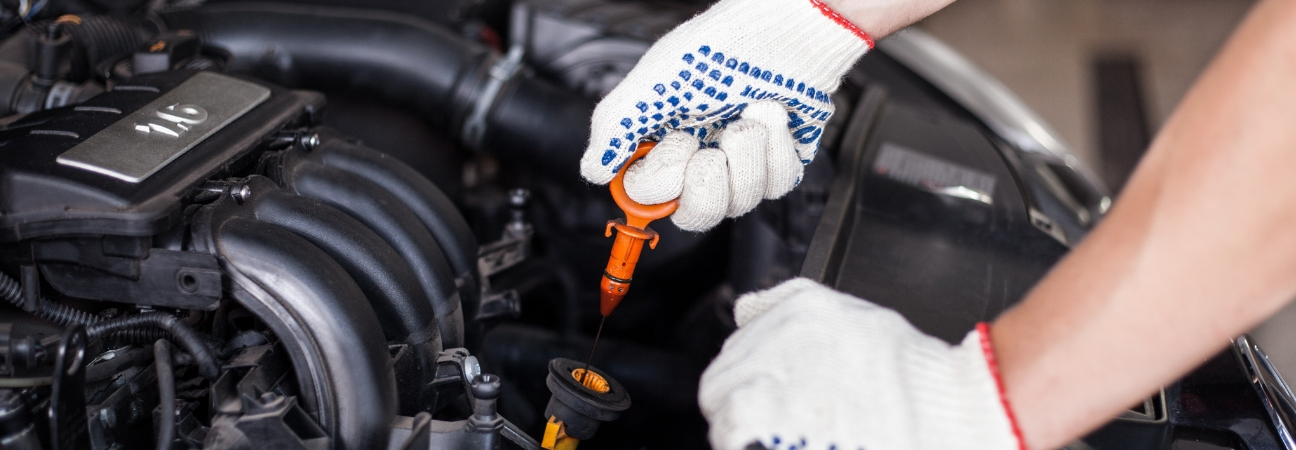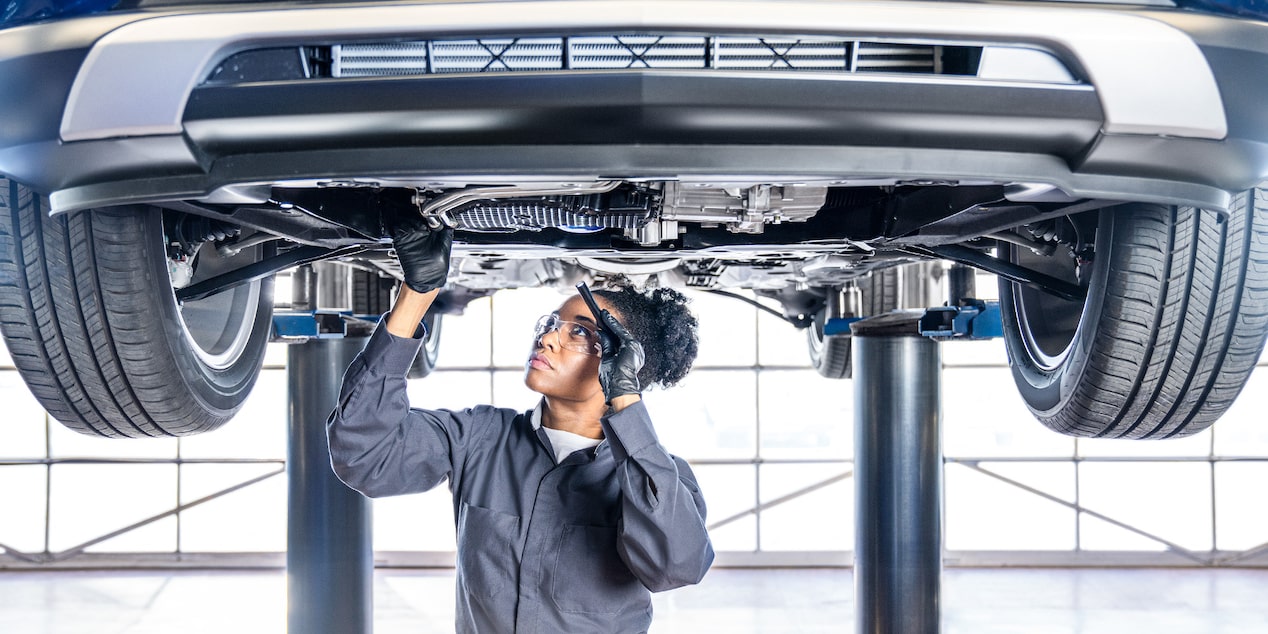All Categories
Featured
Your lorry's engine is an intricate system that depends on lots of interconnected parts to work properly. One of one of the most crucial parts that guarantees whatever runs smoothly is the timing belt. Though usually forgot, the timing belt plays an important function in maintaining your engine synchronized and operating at peak performance. Disregarding its maintenance or replacement can cause major, costly damages to your engine. In this article, we'll check out the value of timing belt replacement and why it's necessary to your engine's long life.
What Is a Timing Belt and Exactly How Does It Work? The timing belt is a rubber or enhanced composite belt that connects the crankshaft to the camshaft in your engine. These two components have to operate in sync for the engine's shutoffs to open and shut at the best times during the burning cycle. The timing belt manages this synchronization, ensuring that the valves and pistons do not collide.
![]()
As your engine runs, the timing belt constantly transfers to maintain these components lined up. Gradually, the belt goes through deterioration from engine, heat, and friction resonances. If it damages or ends up being loosened, the crankshaft and camshaft will no more be integrated, causing engine misfires, loss of power, or, in the worst situation, serious engine damage.
Why Timing Belt Replacement Is Essential. Prevents Serious Engine Damage: If the timing belt breaks while the engine is running, the pistons can collide with the valves, creating bent valves, damaged pistons, or perhaps a split engine block. This kind of damages commonly requires considerable and costly repair work or a whole engine replacement. Replacing the timing belt before it stops working is a economical and straightforward method to prevent such catastrophic effects.
![]()
Makes Certain Smooth Engine Procedure: A well-kept timing belt assists keep your engine running efficiently by keeping the proper synchronization between the crankshaft and camshaft. When the timing belt is worn or extended, the timing of the engine's valves might be off, causing engine misfires, harsh idling, or delaying. Replacing the timing belt at the recommended period ensures that the engine runs as it was made to, enhancing performance and performance.
Conserves You Cash: Although replacing the timing belt may look like a considerable in advance cost, it's far a lot more budget-friendly than the price of fixing or changing a damaged engine. The labor involved in changing the timing belt is much less costly than repairing engine parts that are harmed as a result of a busted belt. Routine timing belt substitute can save you countless dollars in the long run by protecting against engine failing and costly fixings.
Protects Against Unforeseen Breakdowns: If your timing belt breaks all of a sudden while you're driving, it can leave you stranded and require costly towing. In the most awful cases, it can cause a complete engine failing that renders your automobile inoperable. By changing the timing belt according to the producer's guidelines, you decrease the threat of sudden break downs and ensure your car stays trustworthy throughout day-to-day driving and lengthy journeys.
When Should You Change Your Timing Belt? The timing belt does not last for life, and its replacement timeline can differ depending upon the make and version of your car. Most suppliers suggest replacing the timing belt every 60,000 to 100,000 miles. It's important to consult your automobile's proprietor's handbook for certain guidelines, as some engines may need earlier or later replacements.
If you're unclear about the problem of your timing belt, signs that it could need changing include unusual engine noise (such as ticking or slapping sounds), problem beginning the engine, or inadequate engine performance. A professional auto mechanic can inspect the timing belt for damage and change it if necessary.
Final thought. The timing belt is an important part of your vehicle's engine, and its correct upkeep can save you from costly repairs and engine damage. Routinely changing the timing belt at the producer's advised periods assists make certain smooth engine operation, prevents unforeseen breakdowns, and inevitably extends the life of your engine. Don't neglect this important maintenance job-- by remaining on top of timing belt replacement, you're buying the long-lasting health of your car.
What Is a Timing Belt and Exactly How Does It Work? The timing belt is a rubber or enhanced composite belt that connects the crankshaft to the camshaft in your engine. These two components have to operate in sync for the engine's shutoffs to open and shut at the best times during the burning cycle. The timing belt manages this synchronization, ensuring that the valves and pistons do not collide.

As your engine runs, the timing belt constantly transfers to maintain these components lined up. Gradually, the belt goes through deterioration from engine, heat, and friction resonances. If it damages or ends up being loosened, the crankshaft and camshaft will no more be integrated, causing engine misfires, loss of power, or, in the worst situation, serious engine damage.
Why Timing Belt Replacement Is Essential. Prevents Serious Engine Damage: If the timing belt breaks while the engine is running, the pistons can collide with the valves, creating bent valves, damaged pistons, or perhaps a split engine block. This kind of damages commonly requires considerable and costly repair work or a whole engine replacement. Replacing the timing belt before it stops working is a economical and straightforward method to prevent such catastrophic effects.

Makes Certain Smooth Engine Procedure: A well-kept timing belt assists keep your engine running efficiently by keeping the proper synchronization between the crankshaft and camshaft. When the timing belt is worn or extended, the timing of the engine's valves might be off, causing engine misfires, harsh idling, or delaying. Replacing the timing belt at the recommended period ensures that the engine runs as it was made to, enhancing performance and performance.
Conserves You Cash: Although replacing the timing belt may look like a considerable in advance cost, it's far a lot more budget-friendly than the price of fixing or changing a damaged engine. The labor involved in changing the timing belt is much less costly than repairing engine parts that are harmed as a result of a busted belt. Routine timing belt substitute can save you countless dollars in the long run by protecting against engine failing and costly fixings.
Protects Against Unforeseen Breakdowns: If your timing belt breaks all of a sudden while you're driving, it can leave you stranded and require costly towing. In the most awful cases, it can cause a complete engine failing that renders your automobile inoperable. By changing the timing belt according to the producer's guidelines, you decrease the threat of sudden break downs and ensure your car stays trustworthy throughout day-to-day driving and lengthy journeys.
When Should You Change Your Timing Belt? The timing belt does not last for life, and its replacement timeline can differ depending upon the make and version of your car. Most suppliers suggest replacing the timing belt every 60,000 to 100,000 miles. It's important to consult your automobile's proprietor's handbook for certain guidelines, as some engines may need earlier or later replacements.
If you're unclear about the problem of your timing belt, signs that it could need changing include unusual engine noise (such as ticking or slapping sounds), problem beginning the engine, or inadequate engine performance. A professional auto mechanic can inspect the timing belt for damage and change it if necessary.
Final thought. The timing belt is an important part of your vehicle's engine, and its correct upkeep can save you from costly repairs and engine damage. Routinely changing the timing belt at the producer's advised periods assists make certain smooth engine operation, prevents unforeseen breakdowns, and inevitably extends the life of your engine. Don't neglect this important maintenance job-- by remaining on top of timing belt replacement, you're buying the long-lasting health of your car.
Latest Posts
Explore Best Car Repair Solutions at Montclare Auto Repair – Reliable Repairs Await
Published Jun 01, 25
1 min read
Learn Why Chicago Drivers Select Montclare Auto Repair for Reliable Service and Significant Savings
Published May 30, 25
1 min read
Secure Your Home with Quality Residential Roof
Published May 25, 25
1 min read
More
Latest Posts
Explore Best Car Repair Solutions at Montclare Auto Repair – Reliable Repairs Await
Published Jun 01, 25
1 min read
Learn Why Chicago Drivers Select Montclare Auto Repair for Reliable Service and Significant Savings
Published May 30, 25
1 min read
Secure Your Home with Quality Residential Roof
Published May 25, 25
1 min read